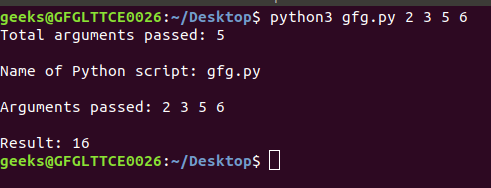The *args will give you all function parameters as a tuple: 06/02/2018 · in python function, an argument with single asterisk (star) prefixed to it helps in receiving variable number of argument from calling environment. 30/08/2008 · the *args and **kwargs is a common idiom to allow arbitrary number of arguments to functions as described in the section more on defining functions in the python documentation. An argument is the … Return val1 + val2 + val3.

#function definition #statements function_name(actual_parameters) #function call formal parameters.
The following example shows how to use a default parameter value. Generally, there are two types of parameters in python. When used, we get the following: Argument with double asterisks (stars) is used in function definition when variable number of keyword arguments. Return val1 + val2 + val3. >>> print(foo(1, 2, 3)) 6. An argument is the … Information that are passed into a function. A parameter is the variable listed inside the parentheses in the function definition. 06/02/2018 · in python function, an argument with single asterisk (star) prefixed to it helps in receiving variable number of argument from calling environment. Syntax of function definition and function call : Print (a) foo (1) # 1 foo (1,2,3) # 1 # 2 # 3. Print (i) >>> function (1,2,3,4,5) 1 2 3 4 5.
The following example shows how to use a default parameter value. 30/08/2008 · the *args and **kwargs is a common idiom to allow arbitrary number of arguments to functions as described in the section more on defining functions in the python documentation. When used, we get the following: Return val1 + val2 + val3. #function definition #statements function_name(actual_parameters) #function call formal parameters.

06/02/2018 · in python function, an argument with single asterisk (star) prefixed to it helps in receiving variable number of argument from calling environment.
>>> print(foo(1, 2, 3)) 6. An argument is the … Generally, there are two types of parameters in python. The terms parameter and argument can be used for the same thing: Print (i) >>> function (1,2,3,4,5) 1 2 3 4 5. Syntax of function definition and function call : 30/08/2008 · the *args and **kwargs is a common idiom to allow arbitrary number of arguments to functions as described in the section more on defining functions in the python documentation. 06/02/2018 · in python function, an argument with single asterisk (star) prefixed to it helps in receiving variable number of argument from calling environment. A parameter is the variable listed inside the parentheses in the function definition. Return val1 + val2 + val3. The following example shows how to use a default parameter value. If we call the function without argument, it uses the default value: #function definition #statements function_name(actual_parameters) #function call formal parameters.
Generally, there are two types of parameters in python. Information that are passed into a function. The terms parameter and argument can be used for the same thing: An argument is the … Syntax of function definition and function call :

Argument with double asterisks (stars) is used in function definition when variable number of keyword arguments.
When used, we get the following: Argument with double asterisks (stars) is used in function definition when variable number of keyword arguments. A parameter is the variable listed inside the parentheses in the function definition. #function definition #statements function_name(actual_parameters) #function call formal parameters. Print (i) >>> function (1,2,3,4,5) 1 2 3 4 5. The following example shows how to use a default parameter value. 06/02/2018 · in python function, an argument with single asterisk (star) prefixed to it helps in receiving variable number of argument from calling environment. An argument is the … The *args will give you all function parameters as a tuple: Syntax of function definition and function call : Return val1 + val2 + val3. Print (a) foo (1) # 1 foo (1,2,3) # 1 # 2 # 3. Information that are passed into a function.
Python Parameter. >>> print(foo(1, 2, 3)) 6. When used, we get the following: An argument is the … If we call the function without argument, it uses the default value: The *args will give you all function parameters as a tuple:


